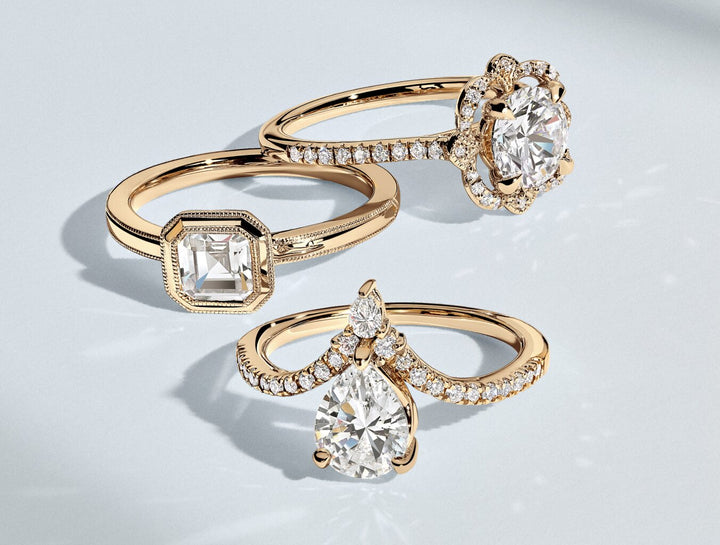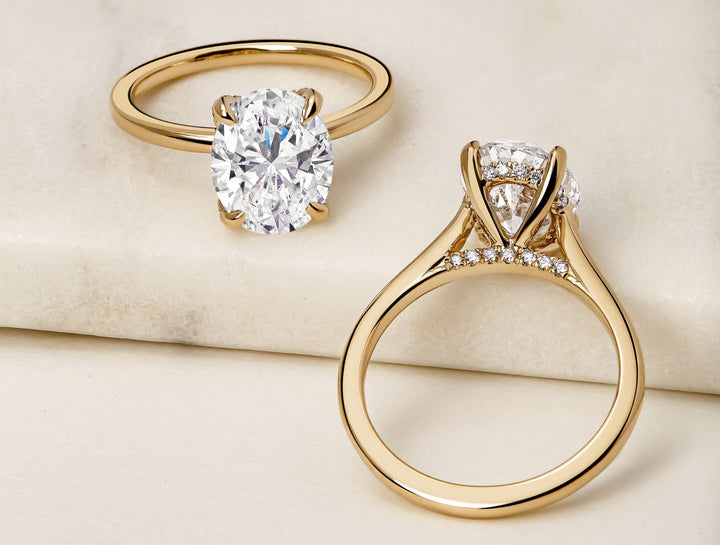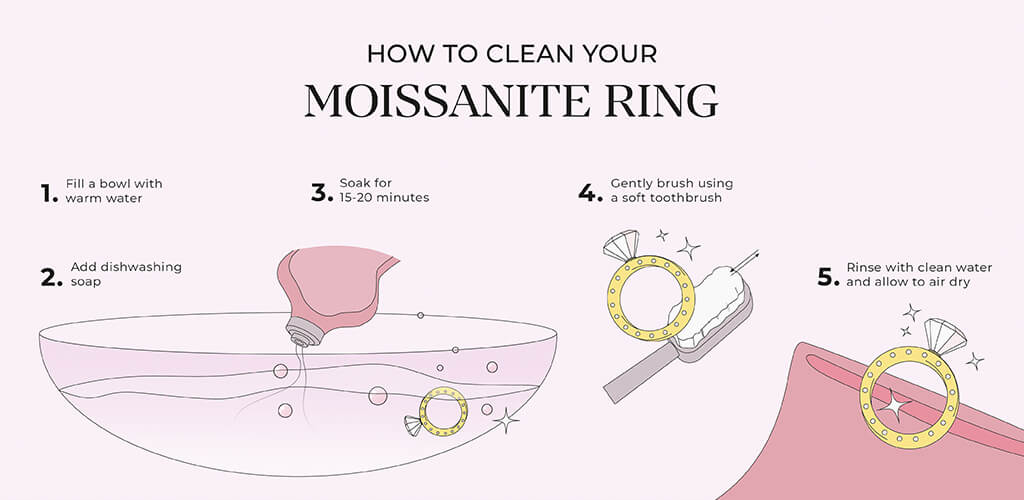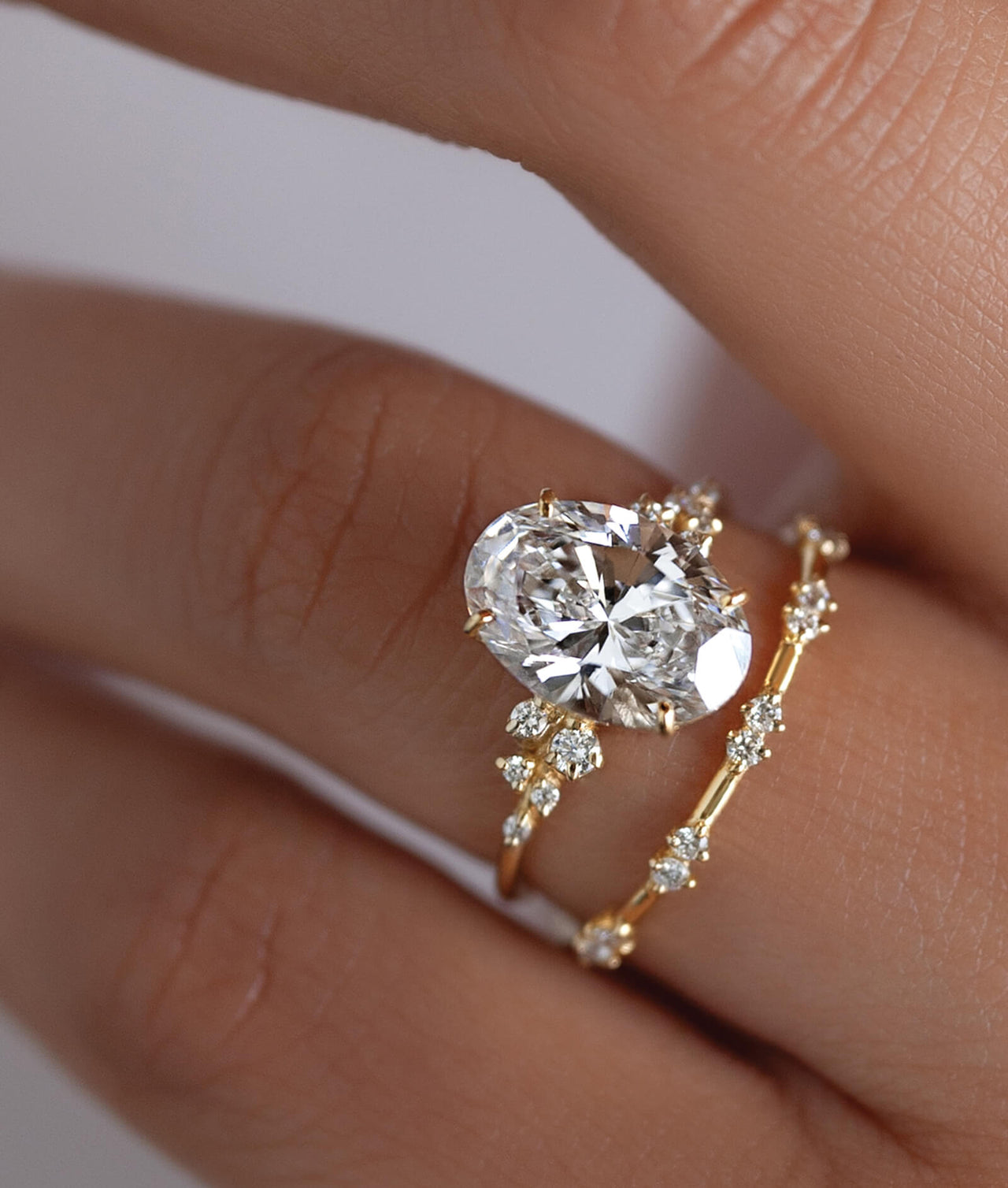
Know About Moissanite
What is Moissanite?
Moissanite has a different chemical makeup from natural and lab grown diamonds. While a diamond is pure carbon, moissanite is both silica and carbon. As a result, Moissanite sparkles differently and is slightly less hard than diamond. In terms of appearance, it does look nearly identical to a diamond and sparkles even more.
Natural moissanite is incredibly rare, so most moissanite available today is created in laboratories. Moissanite is often referred to as a diamond simulant and sold as a substitute, giving the illusion of similarity to diamonds.
Benefits Of Moissanite
-

Exceptional Brilliance
-

Affordability
-

Durability
-

Uniqueness
-

Color Options
-

Conflict-Free
-

Proven Quality
-

Low Maintenance

How Is Moissanite Made?
The basic process of making moissanite involves the same pressure and heat, similar to what is needed when it’s formed in nature. Silicon carbide powder is heated enough to become a gas. Then, through a carefully monitored process, the right chemical and environmental conditions are created to allow the moissanite to grow. This process can take a few months.

The History & Origins Of Moissanite
Henri Moissan was the first person to identify these stones in 1893 in a crater caused by a meteorite in Canyon Diablo, Arizona. At first, he believed he’d found diamonds, it was only 11 years later that he discovered the stones had a different chemical makeup and were, in fact, natural silicon carbide.
Nowadays, since these stones are so rare, most moissanite gems are created in controlled lab environments using advanced technology. Moissanites require absolutely no mining to produce, making their origins easily traceable.
What Are The Qualities Of Moissanite?
Moissanite vs Diamond: Color
Moissanite comes in colorless, near-colorless, and yellow/green shades. This is perfect if you’re looking for a more traditional-looking center stone. On the other hand, diamonds come in every color under the rainbow. You will have no trouble finding an affordable white or fancy color lab diamond.
Moissanite vs Diamond: Price
Moissanite certainly has an advantage over diamonds in terms of price. If you choose to go with a moissanite engagement ring, you’ll pay almost four times less than that of a lab grown diamond ring. If you’re looking to maximize your budget and the size of your center stone, a moissanite ring may be the best option.
Moissanite vs Diamonds: Durability
A gemstone’s durability is measured using the Mohs hardness scale. FYI, diamonds are the hardness substance on earth, rating a 10 on the Mohs hardness scale!
Moissanite doesn’t do too badly either, coming in a close second at 9.25 on the scale. This means your moissanite ring will remain clear and unscratched. In fact, the only thing hard enough to scratch it would be a diamond.
How To Clean Moissanite Ring At Home
Jewelry maintenance doesn’t need to cost you a lot but it is important if you want to maintain that shine you love. Try out our DIY cleaning tips for moissanite engagement rings and other moissanite jewelry.

Moissanite FAQ's
Is moissanite a fake diamond?
Moissanite is not a fake diamond, but rather a distinct gemstone composed of silicon carbide. While it shares some visual similarities with diamonds, it has its own unique properties and characteristics.
Is moissanite a real gemstone?
Moissanite is absolutely a real gemstone. Composed of silicon carbide, moissanite is a popular diamond alternative due to its many visual similarities.
Will moissanite pass a diamond test?
Moissanite typically won’t pass a traditional diamond test, such as a thermal conductivity test or a diamond tester, as it has different thermal and electrical conductivity properties than natural diamonds.
Is moissanite affordable?
Moissanite stones are generally more affordable than diamonds due to differences in rarity and production costs. Natural diamonds are scarce, whereas moissanite can be created in laboratories, making it more cost-effective.
Can you shower with moissanite?
Yes, you can shower with moissanite jewelry. Moissanite is a durable gemstone that can withstand exposure to water and mild detergents. However, it’s important to avoid harsh chemicals and abrasive cleaners, as they can potentially damage the metal settings or diminish the gemstone’s brilliance over time.
Is moissanite ethical?
Moissanite is often considered an ethical gemstone option. This is likely because most moissanite is lab grown since naturally occurring moissanite is very rare. This controlled environment is largely considered to be conflict-free and without ethical concerns that can be associated with gemstones that are mined from the earth.









